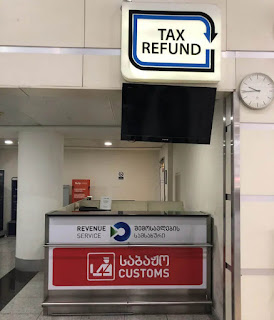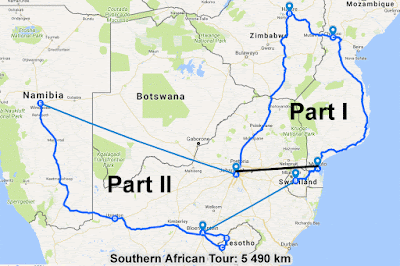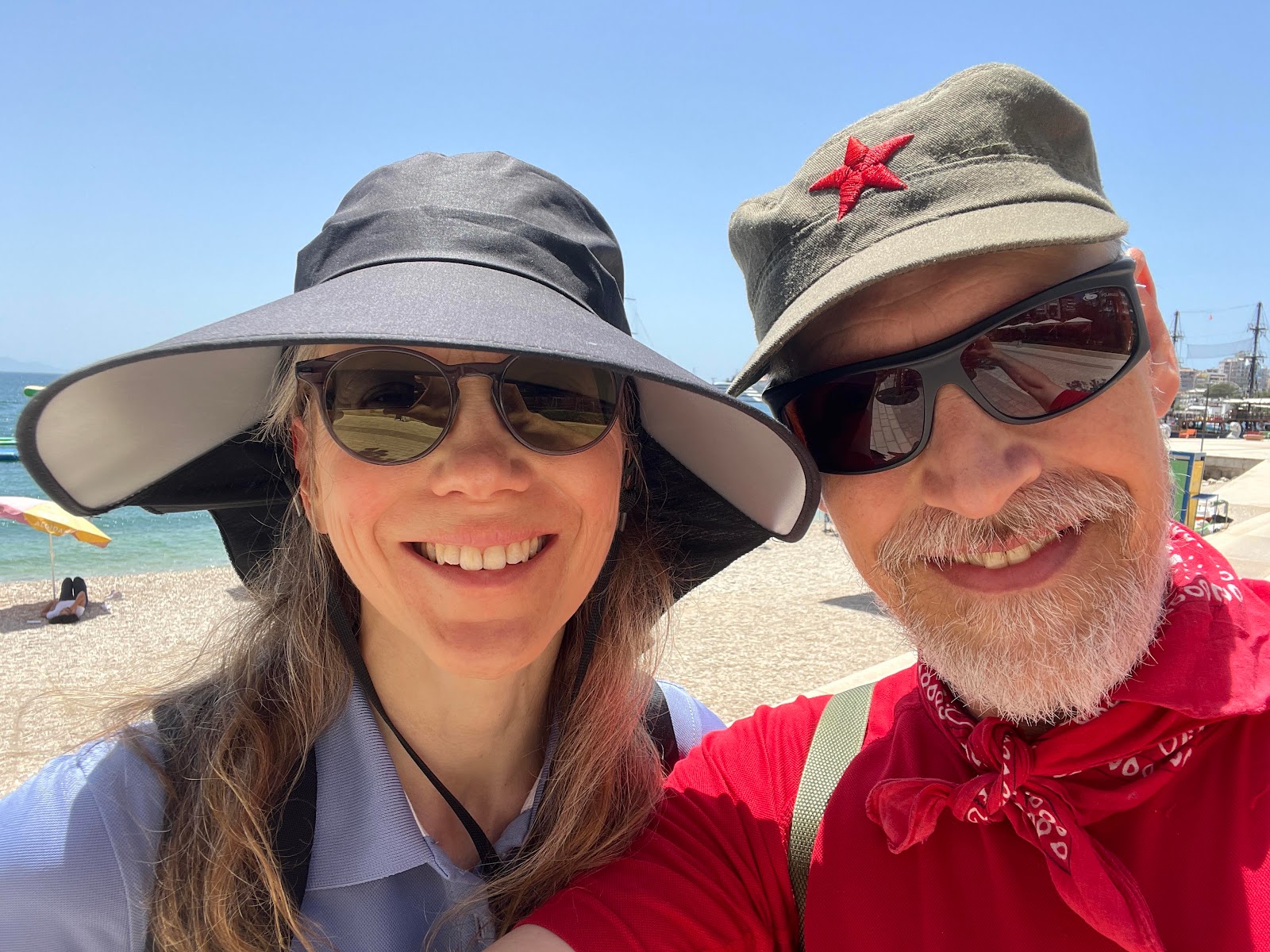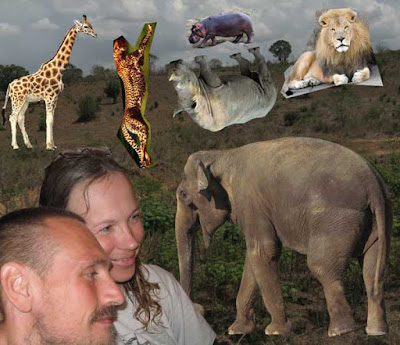Trans-Siberian Railway, Russia
Travelling the trans-siberian railway all the way from St. Petersburg to Vladivostok, Russia. And visiting Voguls on the way.
We started our Trans-Siberian railway ride from Kuokkaniemi, a small village situated near Sortavala and Finnish border in Karelia. The trip ended in Vladivostok near Japan and Korea totaling well over 10.000 kilometres. It would have been possible to do the trip in about eleven days, but we wanted to stop every once in a while and look around. We bought our tickets one by one, just to the next destination, and got this way a lot of experience of Russian bureaucracy, despotism of the police (militsiya), and the lack of any kind of logic in Russia. We knew right away that our Experiment would at least be challenging. In Santeri’s words: Russia should be avoided at any cost.
Challenges
Buying train tickets in Russia is quite interesting if you don’t speak the language. It took us six hours in St. Petersburg to go through various ticket offices and try to get someone to sell us something. The ticket officers are usually old and sour harps who don’t speak English or in general anything. Moreover, foreigners can’t buy tickets in every office and the offices change randomly. We found the right office by trial and error. After queuing to some of the offices more than one hour, we were “Njet, njet”. (That was, by the way, the most usual answer to all questions that we presented with paper and pen during our trip). Those officers, who were willing to deal with us, didn’t naturally tell about cheaper options but tried to sell us some 1st class or luxury tickets. After visiting at least ten ticket counters we had learned enough to get at last reasonably priced tickets. In Moscow a young Russian student helped us to buy the next tickets. With him, the whole procedure took less than an hour.
In Moscow we ran into another kind of obstacle, namely having a hotel room. There is an absurd registration system in Russia. It requires that tourists register themselves in a hotel or in a police station if they stay more than three days in one place. We didn’t have any registration stamps in our immigration card because we had been first camping in the countryside (no police stations there), and then moving on from one city to another in less than three days. In Moscow hotel receptionists got scared when they saw our unstamped immigration cards, and refused to take us in or give us the required stamp. We spent twelve hours trying to get into different hotels, but nobody accepted us. We also went to two different police stations trying to get the stamp there. In the first station we were told that no registration was needed because we were only going to stay one night in Moscow. But in the other station the corrupted police tried to charge us more than 5.000 rubles (~150 euro) for giving the bloody stamp. We refused to pay because we didn’t want to support illegal activities. Finally we called to the Finnish Embassy who arranged us a hotel room for one night without a stamp. It didn’t solve the registration problem of course, and sad to say, the Finnish officers just advised us to bribe the police. We still didn’t. It seemed stupid to support corruption and despotism of the police. We read in the Internet that outside Moscow the registration practices might be different and relied on that.
Fortunately this was so. When we got to Perm, the hotel registered us without any problems. After this, the main trouble in every following city was to find a reasonably priced hotel. Travelling by train, eating and drinking is affordable in Russia, but accommodation is quite often outrageously expensive. You can easily spend 100 euro/night or more for a shitty, 70’s style Breznevian hotel room. In bigger cities, where there is better offerings and more competition, the price can go down to 30-45 euro/night, and the quality is usually the same if not even a bit better. The best options are mini-hotels that have less than ten rooms. Unfortunately they are hard to find as there is usually no hotel (gostinitsya) sign outside, and local people are not much of a help. They know practically nothing about hotels in their own town and never use them. In the city of Surgut we were standing in front of the biggest and the most expensive hotel without knowing that it was a hotel - there were no signs. A helpful local couple made a telephone call to find out for us where the hotel was and heard that were standing at its door step.
Whenever we couldn’t find a mini-hotel, we stayed in Soviet-style colossal hotels that are found in all big cities. They have different price categories and the lowest ones are 35-50 euro/night including breakfast buffet, sometimes a nice one, sometimes yesterday’s left-overs.
Trains
The most affordable option to accommodate is, of course, sleeping in the train. Actually distances from one bigger city to another are such that one night is included in the trip (or better said, the trains are slow because they have to stop many times on the way to let other trains to go past). Trains usually leave in the evening and there is a sleeping place for every passenger. When buying a ticket, it is good to check that you get seats in the same compartment. We had to sleep in different compartments a few times when we were put randomly into whatever places. The harps selling tickets and train conductors could not care less. And the fellow passengers are not willing to change their places. They sit stubbornly in their allocated seat, obviously being afraid of ending up having no place at all.
There are four different classes available: luxury coupé, coupé, platskart and obshie. We tried all except the luxury class. The two cheapest ones are in similar wagons with different services. In platskart you get a dusty mattress, a feather pillow and you can rent (usually, but not always tidy) bedclothes with 1,5 euros; in obshie there is nothing available but seats and beds. Most Russians travel in platskart wagons. It seems to be a cruise-like hip experience for them. Everybody changes special train clothes on (slippers, knee-length trousers and a sleeveless shirt, women use no bra), and enjoy their picnic lunches (bread, pork fat, smoked fish, noodles, smashed potatoes, yogurt), and of course beer. Vodka is rare as most Russians try to behave respectfully in trains, and there are train hostesses and guards to take care of the rest. Russians go to bed around 10 o’clock in the evening. The restaurant closes also at 10, and there is usually nobody except some members of personnel and a few occasional visitors from coupé wagons. The prices are too high for an average train traveller.
Coupé costs more than double the platskart ticket. The main difference is that there is a door in each compartment and less seats. We didn’t see any value in coupé, and favoured obshie and platskart instead. Shower would have made a difference for us, but it is not available in 1st class either. Just imagine the smell after sitting in the train 3-10 days, especially in summer when temperature rises to 30 degrees Celsius inside. Dozens of people are sweating like pigs and vain attempts to cover the smell with deodorants and perfumes fail. The smell of fish that people favour in their train diet is everywhere plus trashes plus shitty toilets. Yak!
For us, obshie was the best option because we got some allergic reactions from dust and feathers especially in coupé. We used our own sleeping bags and mattresses instead. If you are not allergic before your Trans-Siberian Experiment, you might well be afterwards. Unfortunately obshie tickets are hard to get as they don’t sell them for every train so most of the time we had to use platskart. With these two cheapest options, our travel from Kuokkaniemi to Vladivostok cost 425 euros. If we had bought the ticket in advance in Finland, they would have charged us over 4.000 euros! And there are always problems with pre-purchased tickets. Militsiya could have spoiled our schedule with their new bribe demands. If they notice that a tourist is in a hurry and has an on-going ticket, they detain him until the train leaves unless he pays an imaginary fine. And furthermore, in coupés where Western foreigners are usually placed, we wouldn’t have met any of the great travel companies we had, and with whom we enjoyed zakutska, beer and vodka. By the way, these cheerful travellers were all from Ukraine or Bela-Russia. Russians themselves sleep most of the time, and socialize only with their own people.
Trains are definitely the most comfortable way to travel in Russia. In Ural we also had to travel by bus in some areas where there were no rails. It was a lot more expensive and wearisome. In the train you can move around anytime or rest in your bed. There is tea available 24 hours in samovar (unless the conductor is too lazy to keep it warm), and in the restaurant wagon you can get some lunch and dinner. Summer was exceptionally hot this year, and that made trains extremely uncomfortable. There is no functional air-conditioning, and for some reason Russians refuse to open windows, despite of the heat and smells. Maybe they are afraid that there is bad luck coming in from the open windows. Quite probably the heating does not work either, so it’s better to avoid travelling in winter, too. In Santeri’s words: fucking sauna trains.
All Russian trains follow the Moscow time. This is a bit confusing at first as Russia covers eight different time zones. We kept our alarm clock in Moscow time and then calculated the local time manually. It felt a little bit like constant jet-lag because the time difference got all the time greater the further we traveled to the East.
Our route
We stopped in St. Petersburg, Tver, Moscow, Perm, Yekaterinburg, Novosibirsk, Irkutsk, Ulan-Ude and Vladivostoc. Perm, Yekaterinburg, Irkutsk and Ulan-Ude were the most appealing to us while Moscow and Novosibirsk were the least. Hostile attitude towards tourists, and hotel and/or militsiya mafia made the latter complicated and expensive, even repulsive.
Perm is the culture capital of Ural, and it is the home of world-famous Diaghilev ballet. Unfortunately it was summer vacation so Päivi couldn’t enjoy the art of great dancers. Yekaterinburg is more beautiful as a city with rivers and lakes and beautiful old buildings. Irkutsk enjoys the proximity of Lake Baikal and Ulan-Ude is a border crossing town to Mongolia.
From Yekaterinburg we made a detour into Siberian backwoods following the footsteps of Santeri’s great grandfather Artturi Kannisto. He studied the language of vogul (Finno-Ugrian language related to Finnish language), and spent six years in Ural area in 1901–1906. The area near Konda River where he spent those years, was poor and messy. We could easily imagine how undeveloped it looked some hundred years ago after reading Artturi’s travel book. Since then, most names of the former vogul villages had been changed, or they had vanished completely. It seems that there are very little if any voguls left as Artturi forecast. Imperialistic government melted small ethnic groups first into the Russian and later Soviet Union masses.
All cities in Russia are easy to navigate. Russian public transport is frequent and cheap, and there is a name for every bus and tramway stop so it is easy to follow the route. There are both inconvenient minibuses and big buses. We had to wait for the latter ones when traveling with our backpacks and then conductors tried to charge us extra because of our excessive luggage. Most of the times we got away with it because we "didn’t understand" what the conductor was asking from us. A good trick, by the way, in most rip-off situations.
Russia is not a tourist-friendly country
It is rare to meet a Russian who speaks English. Some young people do but they are too shy to try, and a few older people speak a bit German. Therefore knowing at least the cyrillic letters and some key expressions is vital. We knew these very basics and used lots of pen and paper to get things sorted out.
Those Russians who speak English, are usually eager to help. They queued with us in front of ticket offices and made numerous phone calls to check hotels and other services for us. They also took us to the right bus/tramway stops and explained to the driver where to drop us off. These warm-hearted Russians made our day time and again. There was only one thing we complained in the beginning before we learned what it was all about. When a Russian tells you that something is “very near”, it means some 3–4 kilometres of walking. Russians got used to walking long distances carrying heavy stuff in hands in Soviet times.
There are no tourist offices, not even in the biggest cities like St. Petersburg and Moscow. Most people go to these cities or in general to Russia just for a few days with a package holiday including a guided city tour and a hotel. Good for them as they will never have to search for a tourist information in vain, or encounter any of the problems we have written about. For independent travellers Russia is rather unfriendly. It all starts before even getting to the border. Acquiring a Russian visa is very costly, 35 euro for one month and 150 for three months if you have to buy the invitation to the country. And it will get even more costly on the spot when you have to pay for registrations in hotels and other bribes that militsiya will be asking. The total visa cost can be 10-20 times more than the list price of a visa. For over a three-month or with multiple-entry visa an HIV certificate is also required which is really ridiculous. A third world country struggling with gigantic HIV problems simply humiliates 1st world citizens for nothing.
To mention some easy travellers’ tasks, there are many currency exchanges (obmen) in Russia near stations and in big hotels and they work well. The rates variate a lot and some charge commission while others do not so it is good to check several as officers don’t usually negotiate.
In spite of the difficulties mentioned here, there is a lot to enjoy in Russia. To start with, Russian kitchen. Soljanka is a delicious local soup to which smetana (sour cream) puts a finishing touch. Dark rye bread is readily available for side order and supermarkets sell Finncrisps (crisp rye bread). Other favourites of ours are blinis (crepes with different fillings), pelemenis (like Italian raviolis but served with either smetana or in gravy), teftelis (meat balls), shavermas (Russian kebab), and the best of the best: caviar with smetana and pieces of raw onion.
When it comes to nature, culture and history, Russia is unbeatable. Päivi loves Russian literature, ballet and figure skating, and the whole Trans-Siberian trip was a long-time dream of hers. It is sad that travelling around Russia is made so complicated that only crazy idiots who get kicks out of surviving in an absurd and idiotic system go there. We met only a couple of tourists during the whole trip even though it was summer season. Most of them were in Baikal area which seems to be a bit more tourism-oriented than other parts of the country.
We recommend Russia to those who know a bit Russian language, and are not afraid of getting constantly into troubles. The best time for Trans-Siberia is in spring or in autumn. Prices are lower (August is the high season and the ticket prices are 10–15% higher), there is more seats available, and it might not be as hot as in summer. The best way is probably to start from Vladivostoc unlike us. That way you can experience the friendlier parts of the country first before shit hits the fan. Or just skip Moscow and Novosibirsk. Well, whichever way you do it, Russia will certainly be something different.
Sixteen ways to entertain yourself in Trans-Siberian train ride in Russia.











Comments
Jätit noteeraamatta kaupungit lähes kokonaan ja keksityit jonkun vähemmistökansan muutaman yksilön olemassaoloon ja aloit puhumaan imperialismista.
Olisit antanut Päivin kijroittaa raportti. Tai itse asiassa käyneet vaikka Suomi-Venäjä-seuran Sputnik-sivuilla kopiomassa matkaraportin.
Nurjapuolista kirjoittaminen ei ole mitään uutta, mutta loistokkuuden puolesta kirjoittamiseen kirjoittajalla ei psyyke riitä. Maryn kommentti oli tämän raportin paras teksti.